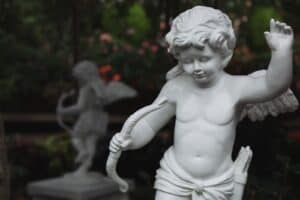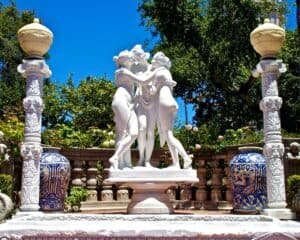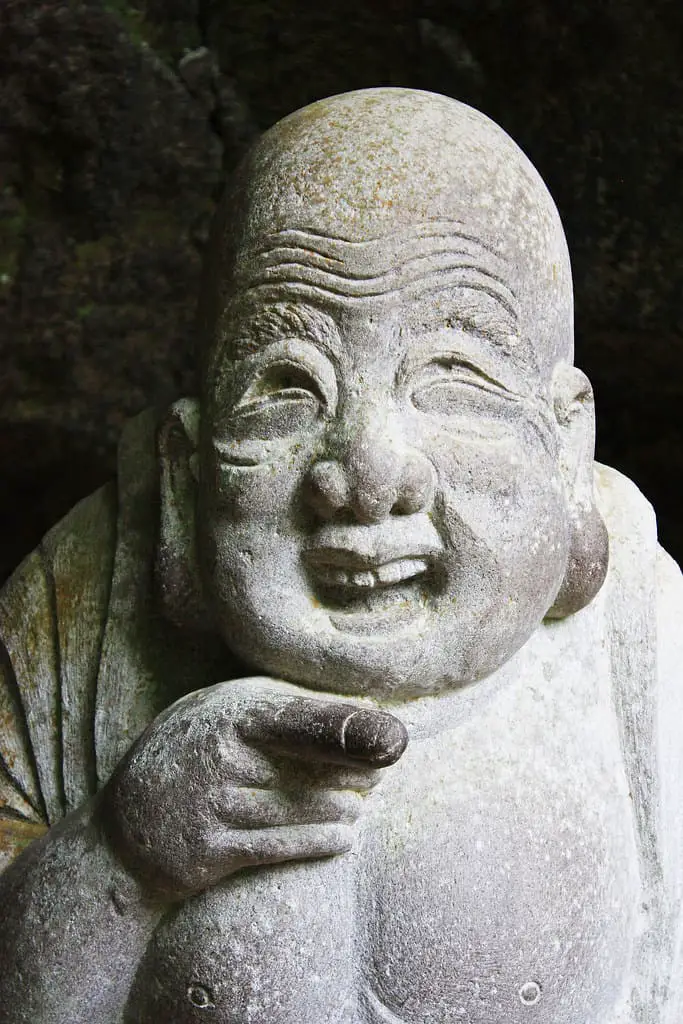In ancient times, people found solace and inspiration in the stories of gods and goddesses. The ancient Greek deities provided answers to the mysteries of the world, giving people a sense of control and understanding. Among these deities was the Greek god of happiness, a symbol of the elusive feeling that all humans desire. Through stories and legends, the people of ancient Greece were encouraged to seek happiness and make it a part of their daily lives.
The Greek God of Happiness and Ancient Greek Mythology
Greek mythology is full of gods and goddesses, each representing a different aspect of human emotion or natural force. One such deity is the Greek god of happiness. Happiness was highly valued in ancient Greece, leading to the inclusion of gods and goddesses that embody this emotion in the pantheon.
The Greek God and Goddess of Joy

Eros, the young man who was the son of Aphrodite, played an essential role in the Greek deities who represented happiness. Eros, also known as Cupid in Roman mythology, is the god of love, desire, and passion. His love story with the mortal woman Psyche is one of the most well-known and beloved stories in Greek mythology, and it inspires happiness and joy in those who hear it. Eros and Psyche’s love transcends boundaries and challenges, proving that true happiness comes from love and deep connections with others.
Another significant god associated with happiness is Dionysus, the god of wine, festivities, and good cheer. His celebrations and parties are said to inspire joy and happiness in those who took part in them. Dionysus’s influence has been felt throughout the ages, with the Roman equivalent being Bacchus.
The Three Graces and the Goddess of Wisdom

In addition to these gods, there is the goddess Euphrosyne, one of the three Graces that are considered the daughters of Zeus and Eurynome. The three graces are personifications of beauty, charm, and grace. Euphrosyne is specifically seen as the Greek goddess of joy, mirth, and happiness. Alongside her sisters, Aglaia and Thalia, they bring happiness and joy to both gods and humans alike.
In ancient Greek mythology, one goddess embodies wisdom and happiness: Athena, the goddess of wisdom, courage, inspiration, and strategic warfare. Known as the daughter of Zeus, she was born fully formed from his head after he swallowed her mother, Metis. Athena is often depicted with an owl, a symbol of wisdom and intelligence. As a symbol of wisdom and strength, Athena’s influence can be felt in various aspects of Greek culture, from the arts and warfare to philosophy and science.
The Influence of the Greek God of Happiness on Other Deities
The concept of happiness and joy in ancient Greek mythology is not exclusive to the Greek god of happiness. The stories and legends of the Olympian gods, goddesses, and theoi Greek mythology often intertwine and influence each other in such a way that elements of joy and happiness appear in various tales.
For example, Apollo, the god of music, prophecy, and the arts, is often associated with joy, as the arts bring happiness to the human soul. His nine daughters, the Muses, inspire creativity and artistic expression, further enhancing the happiness that comes from their father.
Even darker deities, such as Hades, the god of the underworld and death, are not entirely void of happiness. One of Hades’ children, Macaria, is the goddess of blessed death, ensuring a peaceful transition into the afterlife and representing the ultimate end of suffering and pain.
The Continuing Influence of the Greek God of Happiness
Throughout centuries, the stories and myths of the Greek god of happiness and the ancient Greek deities have left an indelible mark on history, art, and philosophy. From the ancient Egyptian pantheon to the Roman gods and goddesses, the concept of happiness in divine form spans cultures and continents.
Academic institutions, such as the Oxford University Press, continue to study and analyze the myths and legends of the ancient Greek world, further proving the enduring influence of these stories. The beautiful poetry of the Olympian Ode, by the poet Pindar, speaks of the eternal search for happiness, emphasizing that even in old age, joy can be found:
“I am persuaded now, that men who are beloved by the gods, even after they have departed from life, do not descend into the secret house of the impotent deity.”
The Greek god of happiness remains a symbol of joy, laughter, and the desire to live life to its fullest. As the stories of Eros, Dionysus, Athena, and the countless other gods and goddesses continue to be told, their influence on our understanding of happiness, love, and the human soul perseveres.
To understand how happiness comes from within, check out Why does happiness come from within?.
For insights on creating your own happiness, read You create your own happiness.
Learn about the powerful effects of gratitude in Why is gratitude so powerful?.
Explore the impact of gratitude on the brain by visiting What does gratitude do to the brain?.
For the benefits of keeping a gratitude journal, read What are the benefits of a gratitude journal? 3 benefits.

